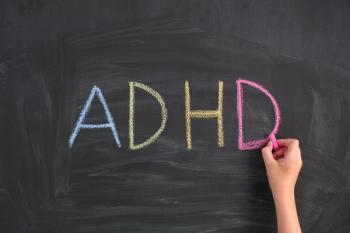
Study: Childhood adversity linked to elevated risk of endometriosis
Childhood adversity may raise endometriosis risk, with exposure to violence linked to a twofold increase, a Swedish study of 1.3M women finds.
A nationwide study from Karolinska Institutet has found a significant association between adverse childhood experiences (ACEs) and the risk of being diagnosed with endometriosis later in life. Drawing on data from more than 1.3 million women in Sweden, the study suggests that early-life stressors, including exposure to violence, parental psychiatric illness, and family instability, may contribute to long-term gynecological health outcomes.1,2
The study, published in Human Reproduction, followed women born in Sweden between 1974 and 2001, excluding those adopted, diagnosed with endometriosis before age 15, or deceased. The final cohort included 1,316,946 women, among whom 24,311 had received a diagnosis of endometriosis by the end of follow-up in 2020.
Endometriosis is a chronic inflammatory condition affecting approximately 10% of women of reproductive age. It occurs when tissue similar to the lining of the uterus grows outside the uterus, often causing pain, inflammation, and infertility. While the causes remain unclear, this study aimed to explore whether early psychosocial stress contributes to disease risk.
The researchers assessed 11 types of ACEs using national registries. These included parental substance abuse, psychiatric disorders, intellectual disability, teenage parenthood, residential instability, parental separation, household financial support, child welfare intervention, and direct or parental exposure to interpersonal violence. The strongest association was found in women who had been exposed to violence during childhood. These individuals had more than twice the risk of developing endometriosis compared with women who had not experienced such exposure (adjusted hazard ratio [HR]: 1.93, 95% CI: 1.52–2.43).
“All factors examined, except death in the family, were linked to an increased risk of endometriosis,” said Marika Rostvall, MD, the study’s first author. “We also saw that the more adverse experiences in childhood, the higher the risk. Among those who had five or more factors, the risk increased to 60%.”
The study found that even a single ACE increased the risk of endometriosis by 20% (adjusted HR: 1.16, 95% CI: 1.13–1.20). A clear dose-response relationship emerged, with risk rising progressively with the number of ACEs. Those with 5 or more had an adjusted HR of 1.57 (95% CI: 1.34–1.84) compared to those with no ACEs.
The researchers also conducted sensitivity analyses, including dysmenorrhea as an additional outcome, given that endometriosis is frequently underdiagnosed or misdiagnosed as menstrual pain. These secondary analyses supported the main findings.
Though the study is observational and cannot establish causality, the authors proposed several biological mechanisms. One possibility is that chronic stress from early-life adversity may dysregulate the immune system, impeding the body’s ability to clear endometrial-like tissue from ectopic sites. Another theory is that early trauma increases pain sensitivity, making individuals more likely to report and seek care for endometriosis symptoms.
“The results suggest that early life experiences can affect the body's health much later in life and highlight the importance of looking at the whole person, not just the symptoms,” Rostvall said. “The findings are also in line with previous research showing that difficulties in childhood have profound consequences for future health.”
This study is the first of its kind to use register-based indicators of ACEs in a general population cohort, thereby reducing recall bias that affects self-reported studies. However, the authors note that the reliance on health care and social service records may underestimate exposure, particularly for types of abuse or neglect that go unreported.
The study was conducted in collaboration with the Centre for Epidemiology and Community Medicine (CES), Region Stockholm, and funded by Karolinska Institutet and Region Stockholm. According to the authors, these findings could inform future research into the biological pathways linking psychosocial stress and gynecologic disease and highlight the need for integrated, trauma-informed care.
"I hope that the findings can be used to improve both preventive measures and treatment in health care,” Rostvall added.
References:
1. Karolinska Institutet. Difficult childhood experiences may increase the risk of endometriosis. Eurekalert. June 11, 2025. Accessed June 11, 2025. https://www.eurekalert.org/news-releases/1086464
2. Rostvall M, Magnusson C, Gemzell-Danielsson K, Kosidou K, Sieurin, J Adverse childhood experiences and the risk of endometriosis—a nationwide cohort study, Human Reproduction, 2025. deaf101, https://doi.org/10.1093/humrep/deaf101
Newsletter
Access practical, evidence-based guidance to support better care for our youngest patients. Join our email list for the latest clinical updates.






